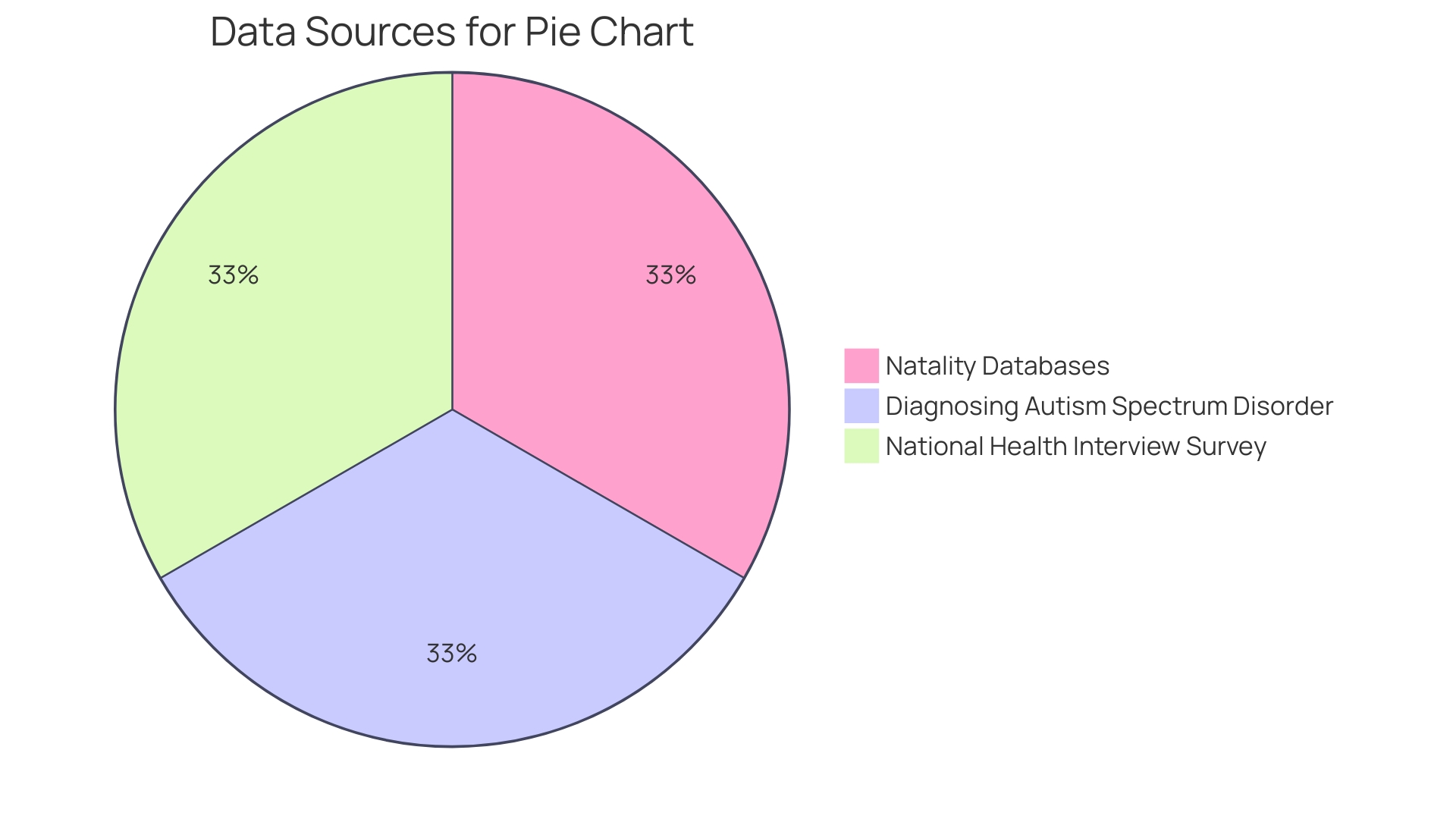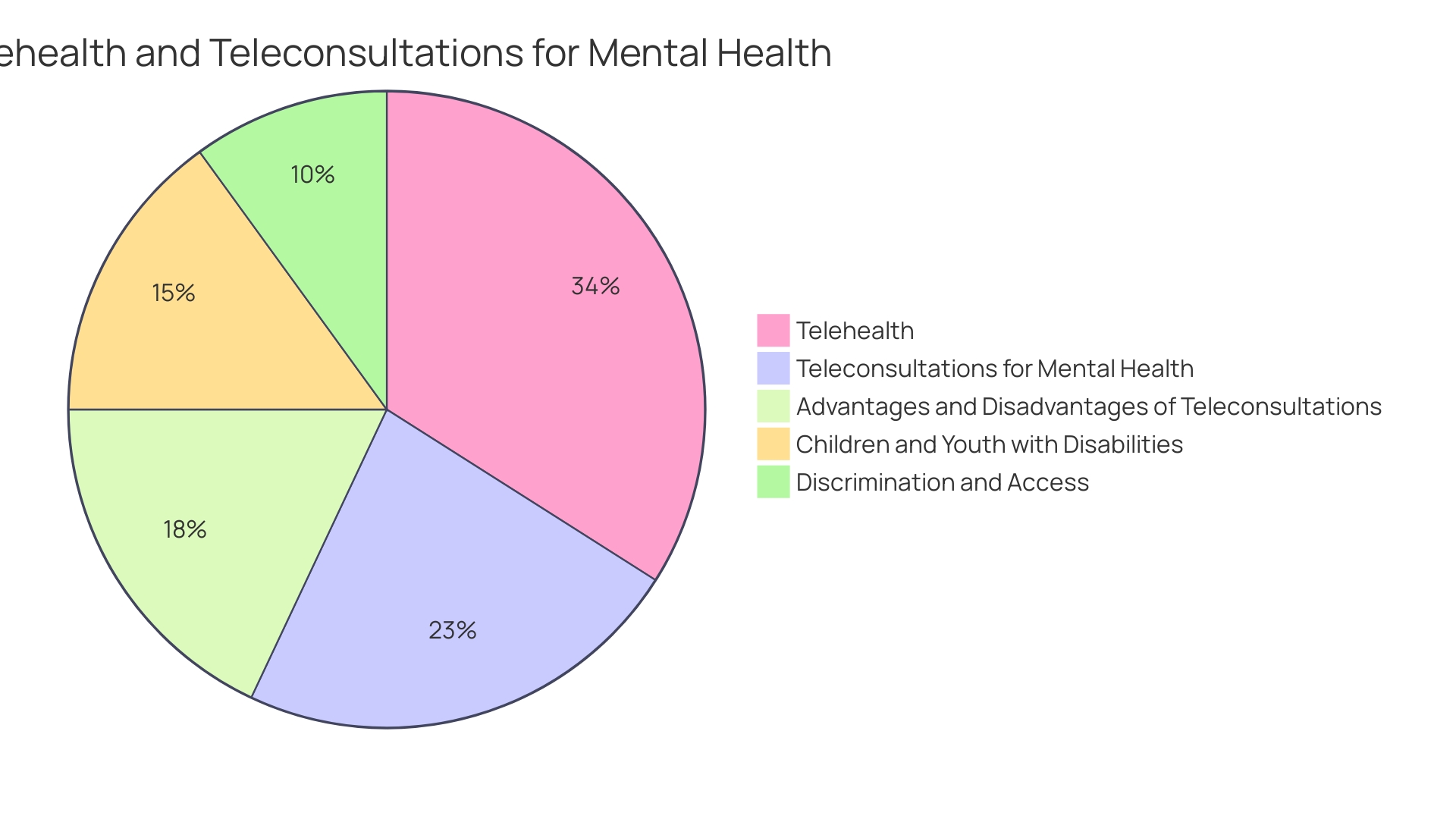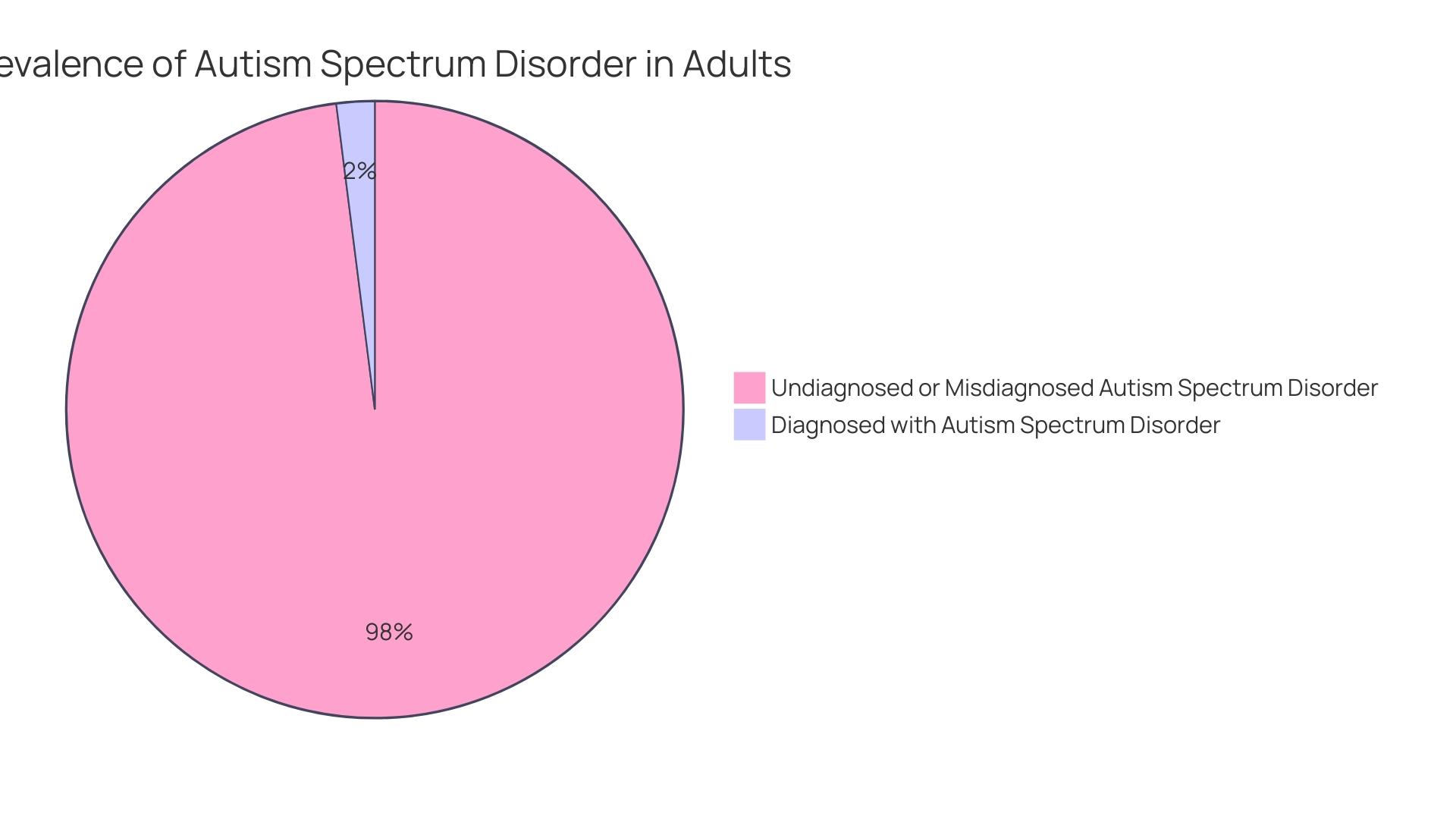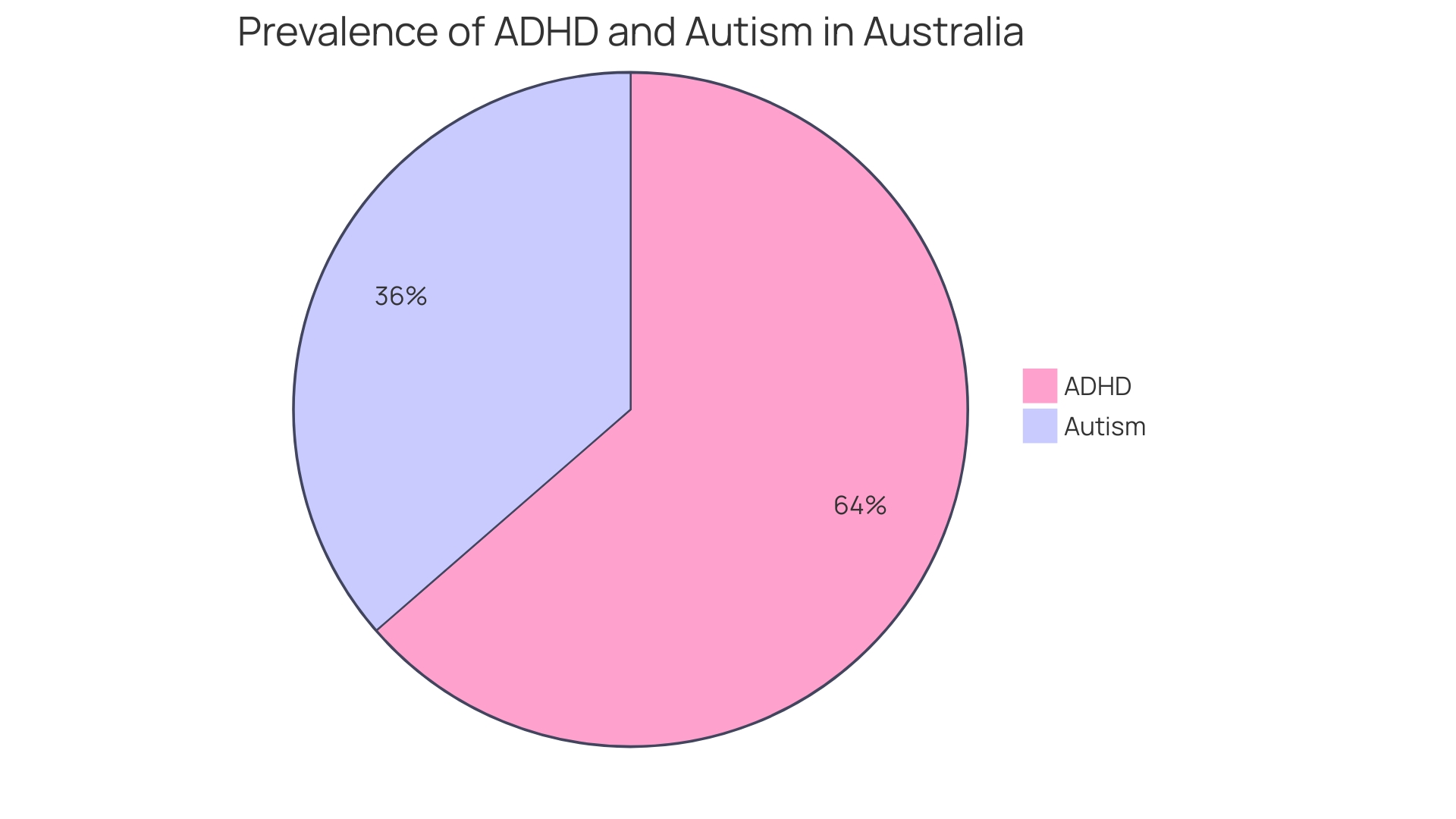Introduction
Navigating the journey towards an adult autism diagnosis can be a deeply personal and transformative process. For individuals who identify with the signs of autism, seeking a formal evaluation can provide a deeper understanding of their own behaviors and experiences. While an official diagnosis is not a prerequisite for self-identification within the autism community, it can be enlightening and affirming, paving the way for specialized support.
However, the road to diagnosis is not without its challenges. Misinformation about autism is widespread, and the diagnostic process for adults differs significantly from childhood diagnosis. Understanding the signs and symptoms of autism in adults is crucial, as it can impact their lives and access to support.
Finding qualified clinicians who are proficient in assessing autism in adults is essential, and the choice between in-person assessments and telehealth evaluations presents its own considerations. Post-diagnosis, navigating support and resources can be overwhelming but connecting with the autism community and accessing tailored services can make a significant difference. Accurate diagnosis is crucial for quality of life, providing validation, access to support services, and the ability to seek accommodations.
However, it's important to address the misconceptions surrounding adult autism and promote a more inclusive and supportive society. Accessing support services and accommodations is vital for the well-being and success of adults with autism, and efforts are being made to improve healthcare provision and workplace inclusivity. As society progresses towards greater awareness and acceptance, the experiences and voices of the neurodivergent community remain essential in shaping a world that celebrates and accommodates all forms of diversity.
Why Seek an Adult Autism Evaluation
Individuals who identify with the signs of autism often consider seeking a formal diagnosis to deepen their understanding of their own behaviors and experiences. Such evaluations can be enlightening, affirming one's self-identification, and pave the way for specialized support. Nonetheless, it's important to note that an official diagnosis is not a prerequisite for self-identification within the autism community, which is accepting of self-diagnosis, especially considering the imperfections and often inconclusive results of medical testing for autism.
Many adults who suspect they may be on the spectrum choose to go through the diagnostic process for personal reasons. For some, it's about legitimizing their experiences to ensure their narrative is not dismissed by others. For others, it's about helping those in their lives who find it difficult to accept a self-diagnosis without the backing of a professional evaluation.
Misinformation about autism is widespread, with studies showing that a significant portion of the content about autism on popular social media platforms is either misleading or categorically untrue. This further complicates the journey for adults seeking accurate information and understanding.
For adults like Heather Florio, who was diagnosed at 41, obtaining a diagnosis was transformative, allowing her to embrace her unique qualities and encouraging others to seek clarity about their experiences. The journey to diagnosis, while deeply personal, can be a critical step in self-acceptance and accessing tailored resources.
The landscape of autism research is evolving, shifting from quasi-experimental studies to more rigorous randomized controlled trials, reflecting the commitment to providing evidence-based interventions. This research is imperative for clinicians to recommend the most effective supports for individuals with autism and their caregivers.
Understanding the signs and symptoms of autism in adults is crucial. Challenges with social communication and repetitive behaviors are hallmarks of autism, regardless of age. For adults contemplating an evaluation, it's essential to recognize these patterns and consider how a formal diagnosis might impact their lives and access to support.
In summary, seeking an autism evaluation is a deeply personal decision, influenced by individual needs, the desire for validation, and the potential benefits of having access to directed support and accommodations. The choice to pursue a diagnosis or embrace self-identification lies with each individual and their unique circumstances.
Challenges in Diagnosing Autism in Adults
Understanding the complexities of adult autism diagnosis is crucial, as it differs significantly from childhood diagnosis. Adults may exhibit symptoms that overlap with other conditions, creating a diagnostic challenge. The autistic and neurodivergent communities acknowledge the possibility of self-diagnosis, given the imperfections in the medical testing model for autism, which often yields inconclusive results for adults. An official diagnosis, although not essential for everyone, can underline and validate one's experiences and provide clarity to those around them.
Statistics indicate that 1 in 45 adults in the U.S. have been diagnosed with autism spectrum disorder (ASD), suggesting a substantial number of undiagnosed or misdiagnosed individuals. Adults with autism may have spent their lives unaware of their condition, not recognizing the signs or realizing that certain personal challenges may be associated with autism. The hallmark signs, such as difficulties with social communication and restricted, repetitive behaviors, are consistent regardless of age.
Efforts to improve autism care for adults and their families are underway, with initiatives like the one led by Christopher McDougle, MD at Harvard Medical School, aiming to educate healthcare professionals and advocate for the medical needs of autistic adults. These initiatives serve as a reminder of the critical need for quality medical care for autistic individuals beyond their school years. Dr. McDougle's initiative highlights the gap in services and medical guidance available post-graduation, advocating for a healthcare system that supports autistic adults equally.

The Adult Autism Evaluation Process
Navigating the journey toward an adult autism diagnosis can be a multifaceted process, encompassing various stages designed to provide a thorough understanding of an individual's unique profile. It begins with an initial consultation and screening, a crucial step where individuals discuss their experiences and concerns with a healthcare professional. This dialogue sets the stage for a comprehensive evaluation that includes a review of developmental history to uncover early life behaviors and patterns indicative of autism.
To gain insights into social-communication abilities, a behavioral analysis is conducted, often through both direct assessment and reports from those who know the individual well. Observations in different settings contribute to a multi-dimensional view of how the individual interacts and communicates in day-to-day life. Cognitive and emotional assessments are also integral, providing a clearer picture of strengths and challenges that may affect daily functioning.
The pursuit of a formal diagnosis, however, is a personal choice. As underscored by Christopher McDougle, MD, from the Lurie Center for Autism at Massachusetts General Hospital, recognition of the need for quality medical care for autistic adults is growing. The Adult Autism Health Resources initiative highlights the importance of acknowledging autistic adults' healthcare needs beyond the educational services often associated with younger individuals.
While self-identification within the autistic and neurodivergent community is respected, some individuals may seek an official diagnosis for personal validation or to facilitate understanding among others in their lives. Despite this, the current medical testing model for autism often yields inconclusive results, prompting debates on the necessity and value of formal testing.
Statistics reflect that around 1 in 70 people in the UK is autistic, with a significant number of these individuals expressing a desire to work. However, only about 30% of working-age disabled autistic people are employed, compared to 50% of all disabled people. This discrepancy highlights the importance of initiatives aimed at improving autism care, raising awareness, and reducing stigma to harness the productivity of autistic employees.
As we work towards these goals, the Autism Community in Action (TACA) emphasizes that treatable conditions like autism require accurate diagnoses to start effective interventions. Similarly, the IACC's efforts to enhance coordination and communication across various sectors demonstrate a commitment to progress in autism research and services. With better diagnostic tools on the horizon, there is hope for more timely support for families, potentially transforming the diagnostic journey for many.
Finding Qualified Clinicians for Adult Autism Evaluation
Securing an accurate adult autism diagnosis is a pivotal step for many in obtaining the necessary support. However, it's important to understand that not everyone may require an official diagnosis to identify as autistic. The neurodivergent community widely accepts self-diagnosis, especially given the challenges and inconclusive results often associated with medical testing for autism. For some, a formal diagnosis may validate personal experiences and facilitate understanding from others.
When seeking a diagnosis, it's paramount to find a clinician proficient in assessing autism in adults. This involves looking beyond stereotypes that historically focused on young, white males and recognizing the broader spectrum of autistic traits, which may have been overlooked or misdiagnosed, particularly in women, BIPOC, and transgender or non-binary individuals.
One in 45 adults in the U.S. are diagnosed with ASD, suggesting that many may still be undiagnosed. Identifying a clinician who is not only credentialed but also empathetic to the unique needs of adult autistics is crucial. This includes understanding the societal and psychological challenges faced upon reaching adulthood or when diagnosed later in life.
Initiatives like the Adult Autism Health Resources project champion the education of clinicians and caregivers, emphasizing the importance of quality medical care for autistic adults. Such efforts highlight the necessity for healthcare systems to adapt and provide holistic, continuous support for autistic individuals beyond childhood.
Options for Evaluation: In-Person vs. Telehealth
Adults considering an autism evaluation are presented with two primary avenues: in-person assessments and telehealth evaluations. The choice between these methods involves several factors such as ease of access, convenience, and, more recently, how the COVID-19 pandemic has influenced the availability of in-person services.
Telehealth, also known as telepsychiatry when pertaining to mental health, has been a beacon of hope for many, especially during times when traditional face-to-face interactions were limited. It has been lauded for reducing regional disparities in access to care, allowing individuals in remote areas to receive much-needed support without the burden of travel, thereby saving time and costs and improving quality of life.
However, the adoption of telehealth is not without its challenges. Concerns about rapport, privacy, and the effectiveness of communication through digital means have been raised. Surveys from patients have shown general satisfaction with telehealth services, particularly the ease of accessing healthcare, but a lower satisfaction with the doctor-patient relationship, highlighting the importance of nonverbal cues and physical proximity in therapeutic alliances.
In light of these considerations, the recent 'secret shopper' study published in JAMA Health Forum is noteworthy for revealing significant variations in telehealth offerings across mental health clinics, yet no notable differences based on the patient's mental health condition or perceived race and ethnicity. This indicates a stride toward inclusivity and non-discrimination in telehealth services.
Autism, with its increasing prevalence of 1 in 44 eight-year-old children, presents an ever-growing demographic that will interface with healthcare providers. With a sex bias showing males three to four times more likely to be diagnosed, and autistic adults facing increased health issues and healthcare costs, the need for accessible and equitable health services, including evaluations, is clear.
In navigating the decision between in-person and telehealth evaluations, individuals must weigh the benefits of convenience and accessibility against the potential drawbacks of reduced personal interaction. As the healthcare landscape continues to evolve, particularly in the wake of the pandemic, the emphasis is on ensuring that all patients, regardless of their abilities, receive equal opportunities to access and benefit from these services.

Navigating Post-Diagnosis Support and Resources
Navigating life post-autism diagnosis for adults entails embracing a new understanding of oneself and often requires exploring a variety of support services. While the journey is unique for each individual, many find solace in connecting with the autism community, which is notably accepting of self-diagnosis due to the challenges and limitations associated with medical testing for autism. This inclusive approach recognizes that an 'inconclusive' test result should not be a barrier to finding support and understanding.
As the number of autistic adults is significant and growing, initiatives like the Adult Autism Health Resources aim to improve healthcare and support for this population. With the recognition that autism doesn't end at childhood, there's a push for better medical care and guidance that continues into adulthood.
Autistic adults often face unique challenges, including navigating social communication and dealing with restricted and repetitive behaviors. Misunderstandings can occur with conditions like OCD being mistaken for autism, demonstrating the need for more nuanced support. Moreover, with the prevalence of autism diagnoses increasing, many adults may only now be recognizing signs they have lived with undiagnosed.
Mental health, including autism, affects a significant portion of the adult population, with an estimated 57.8 million adults in the U.S. living with mental, behavioral, or emotional disorders. Barriers to accessing treatment and support are real, with many experiencing delays or cancellations in appointments and difficulty accessing care.
Helping autistic adults thrive involves not only personal growth and community engagement but also advocating for broader societal change. Institutions like NEXT for AUTISM encourage inclusion in the workplace, reflecting a wider movement towards diversity, equity, and inclusion. With recent expansions in Medicaid coverage for autism-related services, there's hope for better support and recognition of the needs of autistic adults.

The Importance of Accurate Diagnosis for Quality of Life
Navigating the complexities of adult autism diagnosis is more than just a clinical process; it is a journey towards self-understanding and acceptance. For those on the spectrum, an official diagnosis can affirm their neurodivergent identity, which is particularly empowering in a world that often prioritizes neurotypical standards. Many adults find that a formal diagnosis validates their experiences and struggles, mitigating the doubts cast by others and themselves.
Moreover, an accurate diagnosis unlocks access to tailored support services, ensuring that the individual's unique needs are met. It also empowers them to seek reasonable accommodations in professional and educational settings, enhancing their ability to thrive in these environments. Notably, the autism community's embrace of self-diagnosis reflects an understanding of the challenges inherent in the medical testing model for autism, which can leave many with inconclusive results. This inclusive stance acknowledges that the pursuit of an official diagnosis is a personal choice, one that may hinge on the individual's need for external validation or support.
However, it's critical to address the pervasive misinformation surrounding autism, particularly on social media platforms like TikTok, where a startling percentage of content is misleading or false. This highlights the importance of reliable resources and informed discussions for those seeking clarity about their neurodivergent identity.
In the broader context, recognizing the rights and needs of individuals with disabilities is paramount, as exemplified by activists' accounts of heightened scrutiny at checkpoints during civil unrest. Such experiences underscore the necessity for a societal shift towards greater awareness and inclusivity for all disabled persons, including those with autism.
Statistics reveal the pressing need for better support systems, with autistic individuals facing increased risks of co-occurring health conditions and a concerning disparity in lifespan. The prevalence of autism is rising, with current estimates at 1 in 44 children, pointing to a growing demographic that will require understanding and accommodations as they age. The adult years of autistic individuals remain a relatively uncharted territory in research, emphasizing the need for a more comprehensive approach to their wellbeing.
In conclusion, obtaining an accurate autism diagnosis in adulthood serves as a crucial step towards empowerment, enabling individuals to navigate life with greater confidence and support. The decision to pursue diagnosis is deeply personal and shaped by a variety of factors, including the desire for validation and the need for specific accommodations or services. As society progresses towards inclusivity, the experiences and voices of the neurodivergent community remain vital in shaping a world that celebrates and accommodates all forms of diversity.
Common Misconceptions About Adult Autism
Understanding autism in adults is key to fostering acceptance and support within the community. Far from the misconception that autism only affects children, 1 in 45 adults in the U.S. are diagnosed with autism spectrum disorder (ASD). These adults may face unique challenges, such as those related to social communication skills and restricted, repetitive behaviors. It's important to note that self-identification as autistic is accepted within the neurodivergent community, especially considering the limitations and inconclusive results often associated with medical testing for autism. In fact, many adults opt for self-diagnosis due to these systemic flaws and the fact that a formal diagnosis may not be pivotal for their success or support needs.
Misrepresentations of autism abound, with social media platforms like TikTok contributing to the spread of misleading information. Research has shown that 32% of autism-related content on TikTok is inaccurate, with another 40% being completely false. This highlights the importance of seeking reliable sources and expert opinions when educating oneself about autism.
In the workplace, the advantages of neurodiversity are becoming increasingly recognized. Initiatives like the National Geospatial-Intelligence Agency's neurodiversity pilot program aim to harness the unique skills and perspectives of autistic individuals. Such programs have demonstrated positive outcomes and are expected to expand, further integrating the neurodivergent community into various professional fields.
Despite growing awareness, there's still a lack of knowledge among some healthcare professionals concerning autism, which can lead to misdiagnoses and inadequate care. This calls for improved training programs developed in collaboration with autistic adults, aimed at enhancing understanding and making health services more accessible.
Adults on the autism spectrum, including those who remain undiagnosed, contribute to a diverse community with a rich tapestry of experiences and talents. By challenging outdated stereotypes and embracing a more nuanced view of autism, society can move toward a more inclusive and supportive environment for all individuals on the spectrum.
Accessing Support Services and Accommodations
Understanding the experiences and support needs of adults with autism is crucial for their well-being and success. A review of 15 papers has shed light on the significant impact that professionals' lack of autism knowledge can have, including misdiagnosis and inappropriate treatment. Overwhelming environments and difficult-to-navigate systems can exacerbate these challenges, emphasizing the importance of specialized training and adaptations in healthcare provision.
Statistics show that 1 in 45 adults in the U.S. are diagnosed with autism spectrum disorder (ASD), suggesting that many may have gone undiagnosed or misdiagnosed. Recognizing the signs of autism is vital for those who have lived without a diagnosis, as it can lead to accessing necessary support services. These services may include therapies covered by Medicaid or private insurance, as highlighted in the 2022 Report to Congress on Supportive Services for Individuals with Autism.
The need for workplace accommodations and community support networks is also pressing. The Bhatia Foundation's Executive Director notes the importance of including autistic individuals in diversity, equity, and inclusion conversations, particularly in employment settings. Furthermore, social engagement tools are essential for autistic adults to manage community life successfully.
As research on autistic adults is minimal, especially in middle and older adulthood, the insights from experts like Gregory Wallace, PhD, are invaluable. He encourages a better understanding of the unique strengths and needs of autistic patients and advocates for practitioners to adapt their methods to include autistic adults in their care. The profound words of encouragement from a blog to an individual searching for understanding about Asperger's syndrome remind us of the inherent value and potential of every person, regardless of neurology.

Conclusion
Obtaining an accurate autism diagnosis in adulthood empowers individuals to navigate life with confidence and support. It is a deeply personal decision, driven by the desire for validation and specific accommodations. Understanding the complexities of adult autism diagnosis is crucial, as it differs from childhood diagnosis.
Finding qualified clinicians proficient in assessing autism in adults is essential, as is recognizing the broader spectrum of autistic traits.
The choice between in-person and telehealth evaluations presents considerations of convenience and accessibility. Navigating life post-diagnosis involves embracing a new understanding of oneself and exploring support services. Connecting with the autism community provides solace and understanding.
Efforts to improve healthcare and support for autistic adults highlight the importance of addressing their unique needs beyond childhood.
Accurate diagnosis is crucial for quality of life, providing validation, access to support services, and the ability to seek accommodations. It is important to address misconceptions surrounding adult autism and promote a more inclusive and supportive society. Accessing support services and accommodations is vital for the well-being and success of adults with autism.
Efforts are being made to improve healthcare provision and workplace inclusivity as society progresses towards greater awareness and acceptance.
In conclusion, obtaining an accurate autism diagnosis in adulthood is a transformative step towards empowerment. It enables individuals to navigate life with confidence, access tailored support, and seek accommodations. Recognizing the unique needs of autistic adults and promoting inclusivity are essential for creating a society that celebrates and accommodates all forms of diversity.




